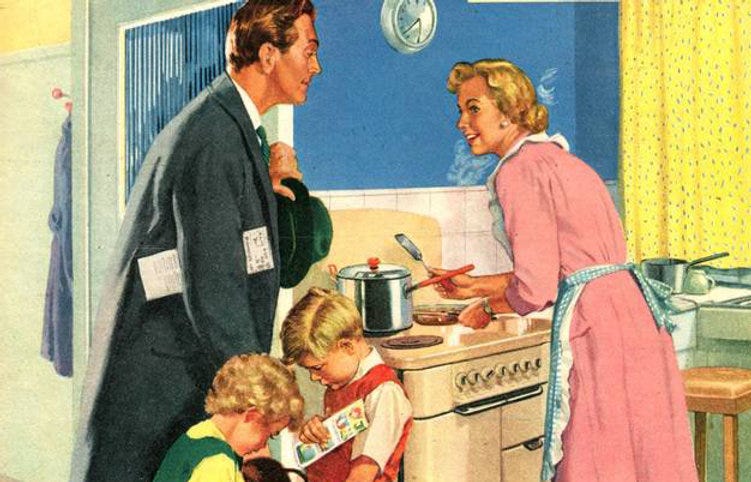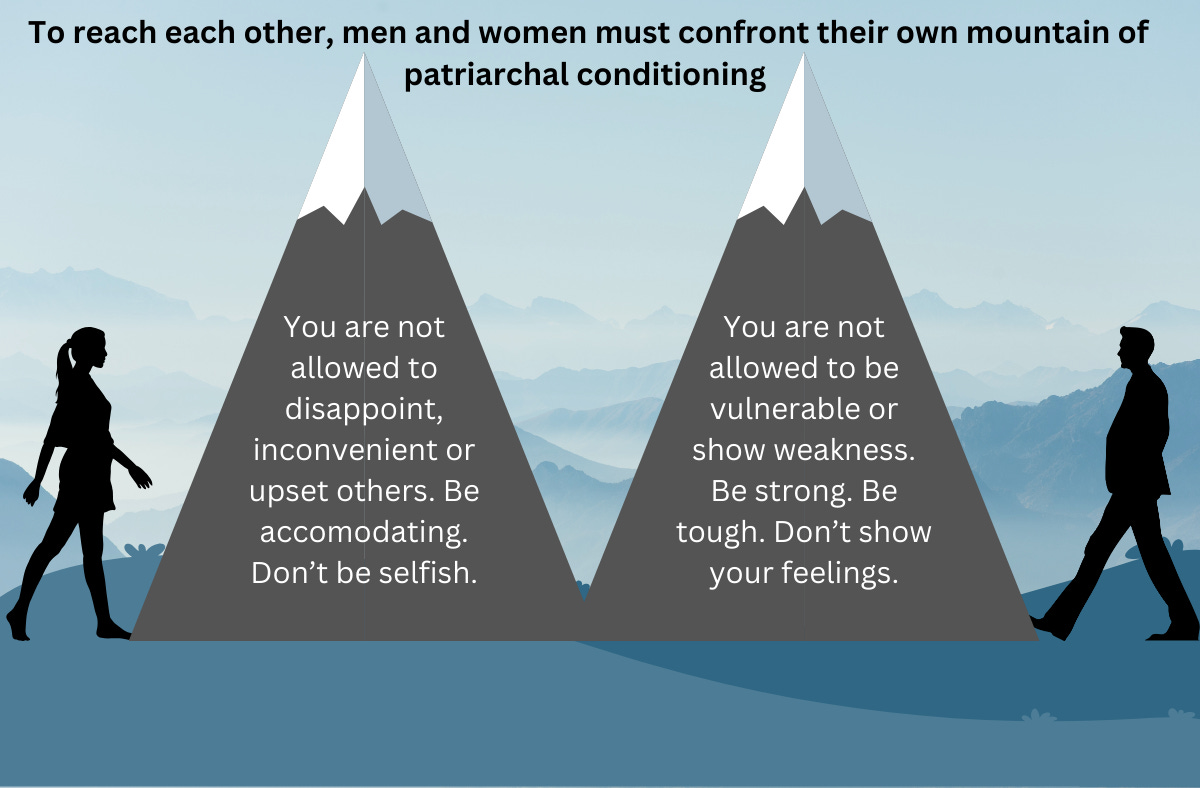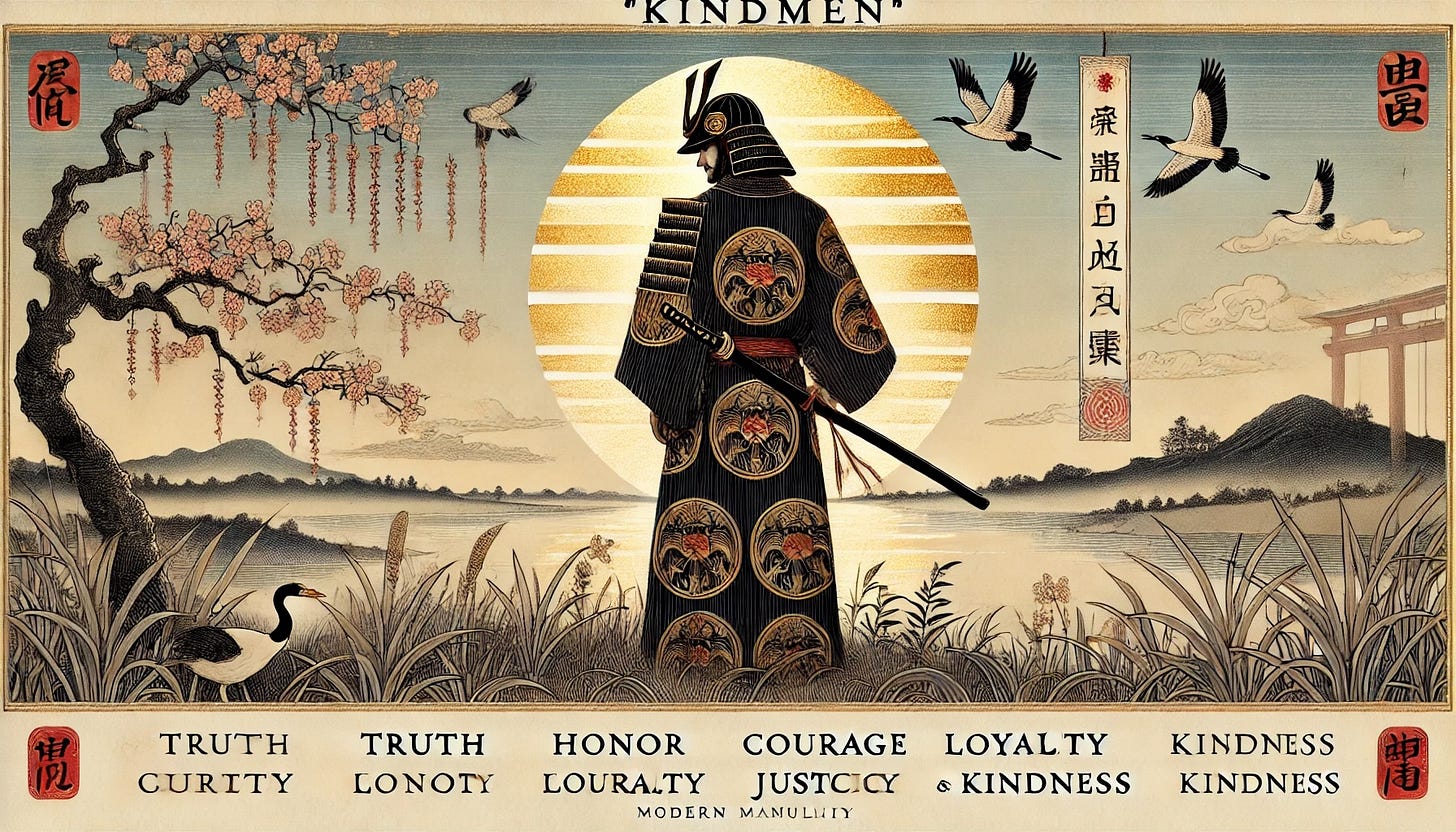I would like to express my heartfelt gratitude to my friends, Cole Feldman, , Sessi, Keli and all those who shared their stories with me. Your courage and honesty were instrumental in shaping this piece, and I am truly grateful for your support and trust.
When I was growing up, I couldn’t understand the resentment my Mom seemed to harbor toward me and my Dad. From the outside, she had everything the American dream could offer: a thriving career, financial security, living by the beach, and a healthy nuclear family. Publicly, she was adored by everyone who knew her, yet at home, she could also be cutting with her words and emotionally withdrawn. This left me with a sense of defensive bitterness and an ingrained distrust of women. I can understand why disenfranchised and angry men are lured towards “manosphere” groups like the Red Pill communities.
It wasn’t until I decided to truly understand my parents—not as my Mother and Father, but as individuals—that I began to see her clearly. My Mom grew up in Hawaii, surrounded by the slow rhythms of island life, but in her twenties, she left for the mainland to build a new life. She started her career and family during the Women’s Liberation movement, at a time when working mothers were blazing uncharted paths. By the late 1970s, she was juggling full-time work as a founding member of a startup with the traditional demands of homemaking, all while raising two young boys. My Dad excelled at his role as provider, which is probably why my Mom never demand he contribute more, leaving her to shoulder both domestic and professional responsibilities.
Looking back, I can only imagine the constant stress and guilt she must have endured. There was no roadmap for women like her—no precedent or guidance on how to balance this new, immense expectation and responsibility. To my father’s credit, he was and still is a great listener and emotionally supportive, in therapy speak holding space. But I now recognize that my Mother, like most women then and now, often felt unappreciated, especially outnumbered by three males.
This deeper appreciation and respect for what my Mother experienced shifted the dynamic of our relationship. I now try to express my appreciation, present, past and future.
It took me a long time to truly understand the anger many women feel and why so much of it is aimed at men. If we want women to honor and empathize with our current struggles and suffering, then we must lead with the same, not with hypocrisy.
IG credit to
The Patriarch Is Part Of Our Past
I get it—everyone loves to pick on “The Patriarch.” But the truth is, this outdated system is holding men back too, in ways we often overlook.
Fredric Rabinowitz is a clinical psychologist and professor who has been running therapy groups for men for the past three decades. He says that any critique of masculinity is often interpreted as a criticism of all men, even though men have lots of complaints about living with the incessant pressures of modern masculinity themselves. (Source)
First, it’s time for us, collectively, to grieve the past. Most of us, regardless of gender, feel betrayed by the false expectations and promises of a future that never came to fruition. It is normal and expected for all of us to feel hurt, sad, upset, scared, worried… it is okay to not feel okay.
Outdated Social Contract
Under the Patriarch the traditional heteronormative gender roles were that men are the breadwinners and women were the homemakers. Today, on a whole women are now breadwinners while still also balancing the majority of household responsibilities, some research suggests around 75%. While there is growing instances of men assuming more homemaker duties, there is also evidence that men are quitting altogether, choosing to feel displaced, instead of engaging in a new gender role dialogue.
Calls to return to the Patriarch “tradwife” model overlook a critical reality: in today’s economy, particularly in high-cost areas, most families require two incomes to make ends meet. This economic necessity makes the old dynamic unattainable for the vast majority of people.
A return to the single breadwinner model is improbable in today’s Western capitalist society. The time has come for us to evolve, stepping into a new dynamic that reflects the realities of modern life.
Overwhelming And Often Unseen Burden
It’s hard to miss the growing number of social media posts and essays on Medium and Substack where women share their struggles with male partners who fall short in contributing to domestic life. Samantha Chua’s article I am Woman. I am Furious. Why Are Women Getting Angrier? dives into this issue, highlighting how societal norms continue to place the burden of household duties on women, even as they juggle demanding careers.
Statistics would support this theory. A 2020 survey by the Institute of Fiscal Studies in England found that mothers assumed more domestic duties during the lockdown, compared to fathers. This results in women having to reduce their paid working hours. No wonder we are angry! In this age where both the man and woman in a heterosexual relationship work similar hours in a week, it is all the most disappointing and infuriating when the truth sets in that the partner that you choose to spend the rest of your life with is part of the system contributing to the decline in your well-being.
Over the past three years, I have been consulting and volunteering in community service roles. Community building in San Francisco has been transformative, offering me a renewed sense of purpose and connection to something larger than myself—a mission that goes beyond personal or financial success.
But let’s not sugarcoat it—it’s hard work—both mentally taxing but emotionally draining. The work that goes into caring about people often goes unnoticed, especially when it comes to financial rewards. And yes, there are days when I think, “Why am I doing this to myself? Should I just go back to the comfort of tech or finance?” I know I didn’t choose this path for the money, but the lack of recognition can hit hard sometimes, turning my gratitude into frustration, and my patience into cynicism.
I can understand why many women feel unseen, unappreciated and disrespected. For centuries, their contributions of serving at home—raising children and managing families—have been taken for granted, and now society expects them to professionally contribute, often alone and without support.
Emotional Immaturity
I recently asked a group of women ages 40-60, many of whom have been through divorce, what they would like to see addressed in masculinity. The number one resounding response was men’s anger.
In our rapidly changing world, many men feel lost, lonely, and uncertain of their value. I’ve felt that, too—chasing temporary ego boosts and longing for something deeper: purpose, meaning, and emotional relief. I’ve written before about the times in my life when anger became the fuel for my ambition. It was a powerful but destructive force—triggered easily and often, it would erupt and wreak havoc on those closest to me. I came to realize that the damage I caused couldn’t be undone by simply apologizing once I calmed down. It took time, honesty, and humility to face the truth: my anger was rooted in something unresolved, and I needed help to heal and grow beyond it.
Anger often becomes a refuge for people—not just men—because it feels empowering compared to the discomfort of facing primary emotions such as sadness, fear, or vulnerability. But when anger takes the lead, it can cause harm, leaving behind broken relationships and eroding the safe, trusting connections we all need. Learning to sit with and process these deeper emotions is essential to building healthier relationships and understanding ourselves.
Men’s Work
Recently, I’ve started asking my female friends to share their frustrations and their thoughts on how men can show up better in their lives. The simple phrase, “Tell me more,” has been surprisingly powerful—many women have told me that men rarely take the time to listen deeply or attentively, even in their closest relationships. This highlights a common issue: men often don’t pay enough attention to the people around them, including their partners, which reflects a lack of emotional maturity.
In a must-read essay by Celeste Davis titled The Marriage Advice Every Couple Needs, but No One Gets, she writes, “The work of men is to lose the self, the work of women is to build the self precisely because we are conditioned to do the opposite. And yes, blurring the gender binary makes everything better for everyone.” Her words resonated deeply, reminding me that redefining traditional gender roles benefits everyone and paves the way for more meaningful and equal partnerships.
Men must learn to embody “non-manly” things like vulnerability, empathy, compassion, housework and compromise.
KINDMEN
In times of stress and emotional reactivity, productive conversations about systemic issues become almost impossible. The solution lies in approaching these discussions with grace, empathy, curiosity, and vulnerability.
The future of masculinity depends on its willingness to grow and adapt. To rise above today’s challenges, we must help young men cultivate an identity that honors tradition’s virtues—truth. My ideal vision is that of a romantic warrior poet—chivalry, courage, discipline, and service—while embracing modern values such as creativity, emotional maturity, and open communication.
Young men flourish when they have strong, healthy role models who demonstrate these qualities. Role models must not only inspire through their character but also nurture loving, equitable relationships grounded in mutual respect.
Starting in 2025, I am planning on launching a series of essays titled KINDMEN. This series will delve into the transformative power of redefining masculinity and offer practical solutions for creating a more inclusive, balanced future.
I want to express my respect for those who find value in the Patriarch model. Relationships are deeply personal, and I admire couples who have cultivated a meaningful connection and lasting love within their chosen dynamic. If my perspective doesn’t resonate with your experience, I welcome the diversity of thought and understanding.










